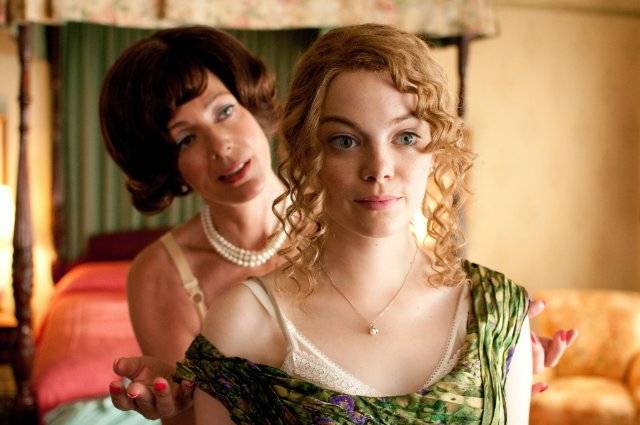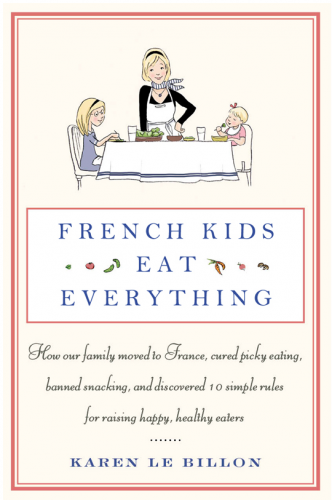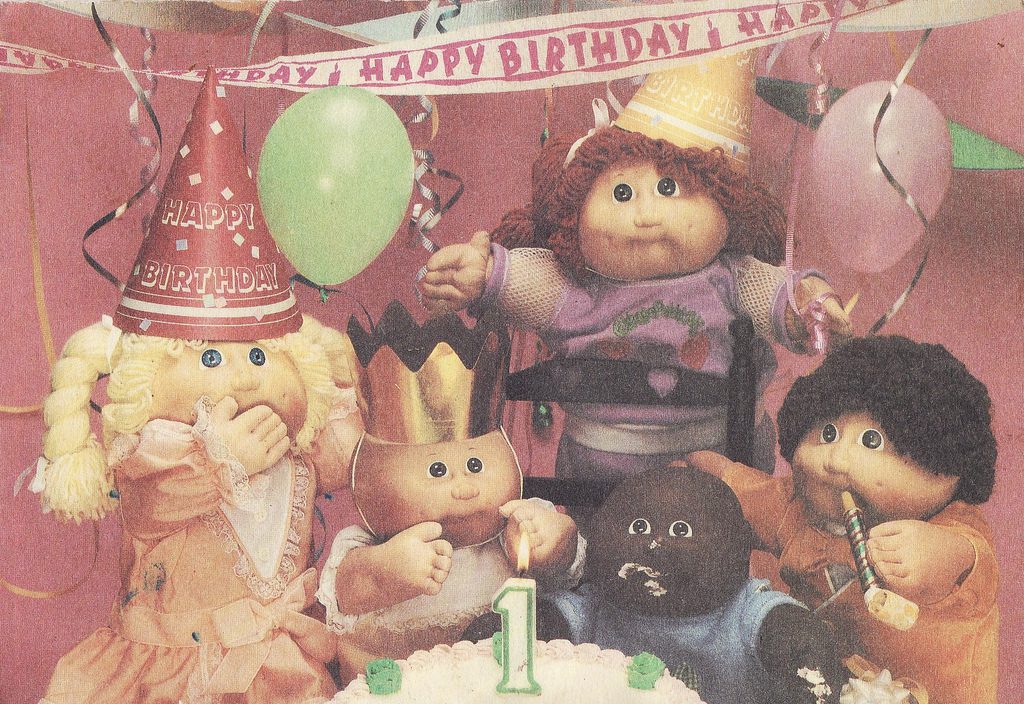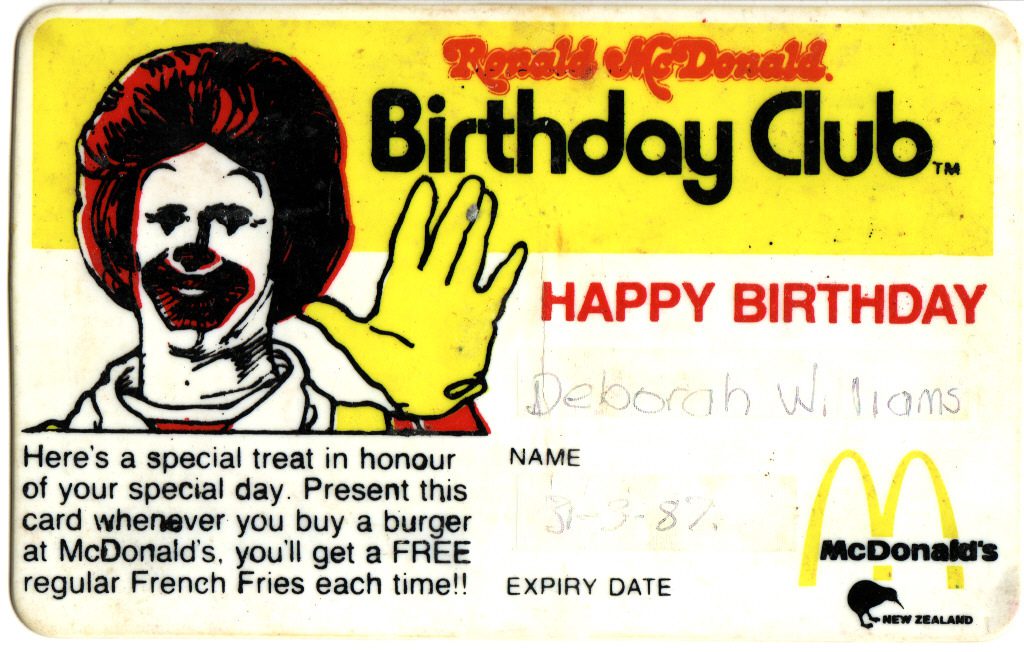
My daughter turned one a few weeks ago, and as is apparently the case whenever I throw a party with cupcakes at my house, I learned something about God’s grace.
Amidst making banners and hanging monthly pictures and Amazon Prime-ing multicolor tassels to hang from the mantle, I found myself reflecting both on what it means to celebrate my daughter, and on her growth and development. The “big O-N-E” tends to serve as a chance to throw a blowout party (we made it!) and as a clear marker for a child’s development: Can she wave “bye bye” yet? Can she stand on her own? Can she follow simple commands? Can she play peek-a-boo? Can she say a word besides “Mama” and “Dada?” Can she “do” X, Y, and Z? And while these questions from my pediatrician and my copy of Baby 411 are certainly important to consider from a health standpoint, I find that there is a fine line between checking to make sure my daughter is developing appropriately and “parenting” her along so that she is the kind of “product” I am proud of, a “thing” from which I can derive my worthiness as a mom.
This idea of “parenting” as a verb and my grappling with the urgency that my daughter must “do” certain things now because of what it must reflect about me stems both from Alison Gopnik’s recent “A Manifesto Against Parenting” and my second reading of my husband’s book, Falling Into Grace. Let me share pieces from both and then attempt to comment on the intersection I am finding between them.
From “A Manifesto Against Parenting”:
“Working to achieve a particular outcome is a good model for many crucial human enterprises. It’s the right model for carpenters or writers or businessmen. You can judge whether you are a good carpenter or writer or CEO by the quality of your chairs, your books or your bottom line. In the “parenting” picture, a parent is a kind of carpenter; the goal, however, is not to produce a particular kind of product, like a chair, but a particular kind of person.
In work, expertise leads to success. The promise of “parenting” is that there is some set of techniques, some particular expertise, that parents could acquire that would help them accomplish the goal of shaping their children’s lives. And a sizable industry has emerged that promises to provide exactly that expertise. Some 60,000 books are in the parenting section on Amazon, and many of them have “how to” somewhere in the title.
To be a parent is to be part of a profound and unique human relationship, to engage in a particular kind of love, not to make a certain sort of thing.
From Falling into Grace:
Grace is the love of God that emphatically proclaims that I am loved and worthy no matter what I do. God declares that we are good, innocent, alive, and righteous. God speaks the Word and calls good what by nature is broken and defective, but in doing so God simply reaffirms and recreates what is most true about us to begin with- our nature is perfection and sin is a disease that tears our divine nature apart. God’s benediction makes alive what by nature is dead. The impact of God’s Word is always that it creates. We become as God regards us, and we grow into the Word spoken over us.
The hard truth is that in my daughter’s twelfth month of life, I sometimes struggle to celebrate and delight in her as is, to speak the word “good” over her. I look around me and see Insta posts and group texts and Pinterest articles celebrating nieces and nephews and neighbors and their ability to sign “more” at 6 months, to clap their hands at 8 months, to walk early, to be potty-trained by 2, to point to their nose or ears or belly-button, to “do X, Y, and Z” and “Isn’t that amazing?” And while all this celebration and sharing and recommending is beautiful and fun and a most natural thing for parents and grandparents to do, it is completely wrecking me, and I suspect I am not alone.
 It contributes to the idea that celebration only happens as a result of my child’s “doing” and not her “being.” And the connection often made between a child’s “doing” and her parent’s choices in “parenting” then suggests that I could and should be doing certain things, buying certain toys, encouraging certain habits so that my child might be as successful. It perpetuates this idea that given a few special techniques, the right kind of toys, and the most carefully-constructed of playrooms, I can prune my child into the kind of product that is considered “good” and therefore brag-worthy. What makes things even more complex and painful is that in these parenting tips and tricks lay more laws to follow, more boxes to check, and therefore more ways to feel worthy (or unworthy) as a mom. So when I share that video of my daughter playing the piano with my family or post that picture of her standing on her own to Instagram, as I lift up my daughter’s “doing,” I am left assessing whether I am innocently celebrating her or if I am subtly using her accomplishments as a conduit for growing my own worthiness. Oh, that I might say the former is more often true. It’s not.
It contributes to the idea that celebration only happens as a result of my child’s “doing” and not her “being.” And the connection often made between a child’s “doing” and her parent’s choices in “parenting” then suggests that I could and should be doing certain things, buying certain toys, encouraging certain habits so that my child might be as successful. It perpetuates this idea that given a few special techniques, the right kind of toys, and the most carefully-constructed of playrooms, I can prune my child into the kind of product that is considered “good” and therefore brag-worthy. What makes things even more complex and painful is that in these parenting tips and tricks lay more laws to follow, more boxes to check, and therefore more ways to feel worthy (or unworthy) as a mom. So when I share that video of my daughter playing the piano with my family or post that picture of her standing on her own to Instagram, as I lift up my daughter’s “doing,” I am left assessing whether I am innocently celebrating her or if I am subtly using her accomplishments as a conduit for growing my own worthiness. Oh, that I might say the former is more often true. It’s not.
In this assessment, however, is where I find God’s grace breaking into my relationship with my daughter and in my kindness towards myself. How do I stand against “parenting” as a verb and instead engage in this “particular kind of love,” this one-way love known as grace? Just as God does over me, I am learning to declare that my daughter is good, innocent, alive, and righteous by His work, not her own or my own. With God, I then recreate and reaffirm what is true about my daughter in the first place: she is good and innocent and beautiful but not because she had an easy time dropping bottles or because she slept well in the crib from night one, but because God says so. And His word is creative. By His benediction, my daughter is made so. His one-way love for me gives me a model to then turn to my daughter and proclaim, “You are good no matter what you do or don’t do, at twelve months or twelve years.”
Since it was published, my husband and I speak every so often of a favorite literary relationship in Kathryn Stockett’s The Help: Aibileen Clark and her “special baby,” Mae Mobley Leefolt. What makes us refer to this pair so often is Aibileen’s dictum frequently spoken over Mae Mobley: “You is kind, you is smart, and you is important.” Perhaps we have always been drawn to this moment and this phrase because we find such power in those words spoken over a child whose chubbiness, lack of cuteness, and bald spot have essentially de-valued her in her mother’s (and society’s) eyes. But it is by those words–kind, smart, important–that sweet little Mae Mobley is made so. Aibileen’s words worked to create the worthiness that was true of Mae Mobley from the beginning. And in those final moments of the novel, as Aibileen is fired and turns to remind “her baby” of these words one final time, our hearts are left soaring because we know that through Aibileen’s benediction over this child, she would indeed become as she was regarded.

COMMENTS
4 responses to “A Mama’s Grace in a Culture of “Do””
Leave a Reply















Profound! Truly grace in practice.
Just got John’s book as a result.
Yay! Read it slowly!! There’s SO MUCH THERE.
I think social media has been good in some ways but bad for us all in many others. Everyone seems very focused on doing (“here I am doing this” “here I am doing that cool thing” “here I am going to this place”) and continuously showing everyone else what they are doing. Others who lack time or resources or even companions can’t help feeling inadequate or worth less or really bad sometimes because they don’t have the means to do things and share. People seem to believe “if I’m not publicly sharing and getting attention for it then does the experience count?” Of course it does count. Doing a thing in order to be seen doing a thing, or because everyone else is doing it, is not an authentic experience most of the time. It’s all very sad. We are valuable because God made us in his image and likeness. How often we forget that for ourselves and about others. If we are too busy posing, arranging items, and taking photographs all the time then we miss out on what really counts, making memories and building relationships with the people around us.
Now it’s one thing for adults choose to do these things. A huge problem I see these days is parents doing this to their children. How many photos of children do we see on social media every day? Hundreds wouldn’t be a stretch. There are too many pictures. That means parents are spending their time posing their children, taking picture after picture of them, and posting on social media with lots of hashtags instead of just enjoying the moments with their children. It’s a constant. They think everyone else should see their special moments and fail to grasp that those moments happen for most parents and children and should stay there. No one needs to see your child going to the bathroom, covered in food, SICK AND CRYING, or upset. Or most things frankly. Share special moments occasionally, but then give your children some privacy, dignity, and your attention. It’s overwhelming out there. People like kid pictures because it’s easy to hit like but they doesn’t mean they want to see 40 of every kid every day. But that’s what parents do.
So no, a first birthday is not excuse for a blowout party. That’s absurd and excessive. By all means, celebrate your child’s growth, but a small family party is more meaningful and good than spending lots of cash on decorations and extravagant cakes. They won’t remember anyway. A child’s birthday is a good time to celebrate her existence. It doesn’t require excessive doing, just being. Make a homemade cake and a few decorations. Invite just close family and maybe a friend. Are you doing it to show? Or to celebrate being?
I totally agree with your thoughts on the good/bad aspects of social media! I have a love-hate relationship with Instagram and Snapchat. Hence, this article.
Also, I agree that overposting of kids’ daily activities on social media can be annoying, and yes, some parents can go overboard with first birthday parties, but calling parents’ choices absurd, excessive, or overwhelming and detailing the specific ways that are most “meaningful” to celebrate a child is simply establishing more “laws” that parents feel they should follow to then be considered “good,” and that’s kind of my point. God says that we are “good” no matter the number of pictures we post of our children or the money that we spend on their birthday parties. I tend to think we all need to be more mindful of the laws and expectations we either intentionally or unintentionally project on each other and ourselves (whether that’s through Instagram or Snapchat or a comment on a blog) and instead choose to show ourselves and others a bit more grace. We are all “diseased” and desperately need God’s grace.
My hope for this article was that through a vulnerable and honest reflection of the ways that I celebrate my daughter and the tough time I sometimes have engaging in this social media/”parenting” culture in a grace-filled way, my readers might then look inwardly and evaluate the ways they lift up their own children or grandchildren and learn to honor their “being” rather than just their “doing.”